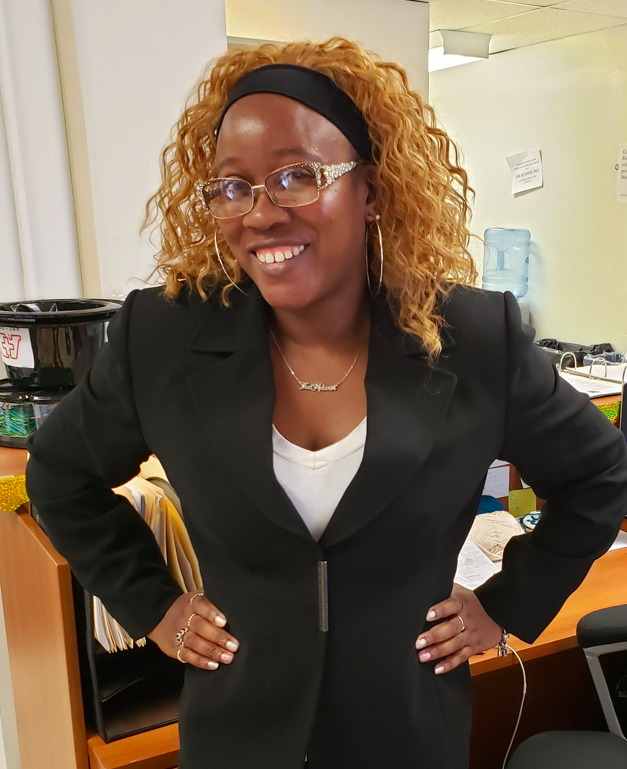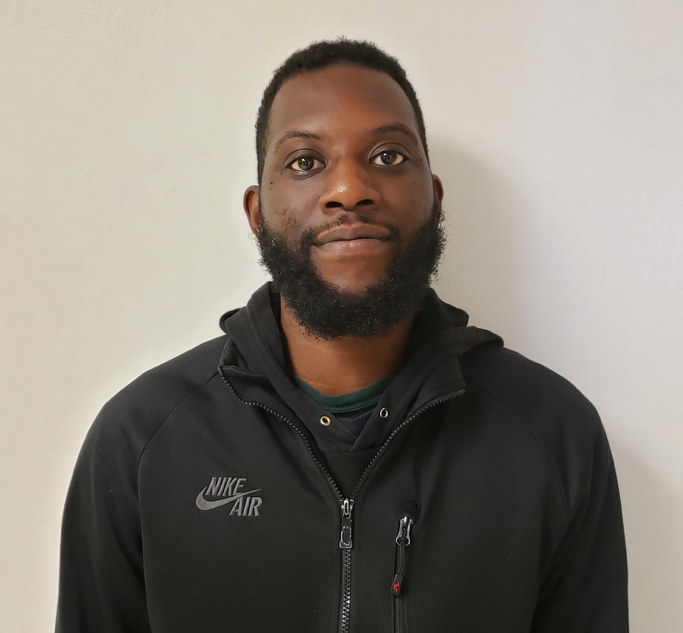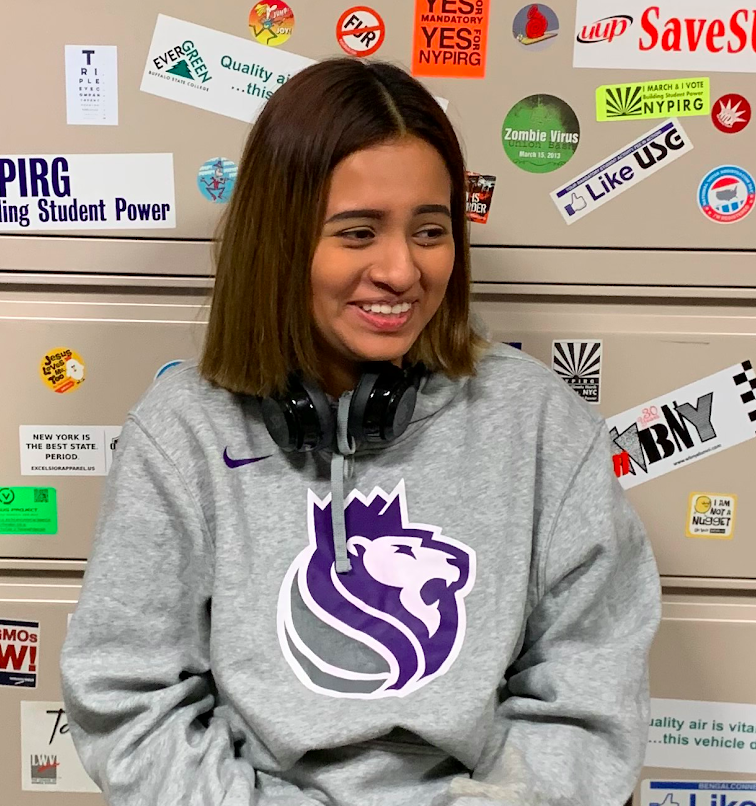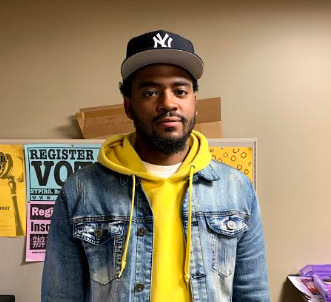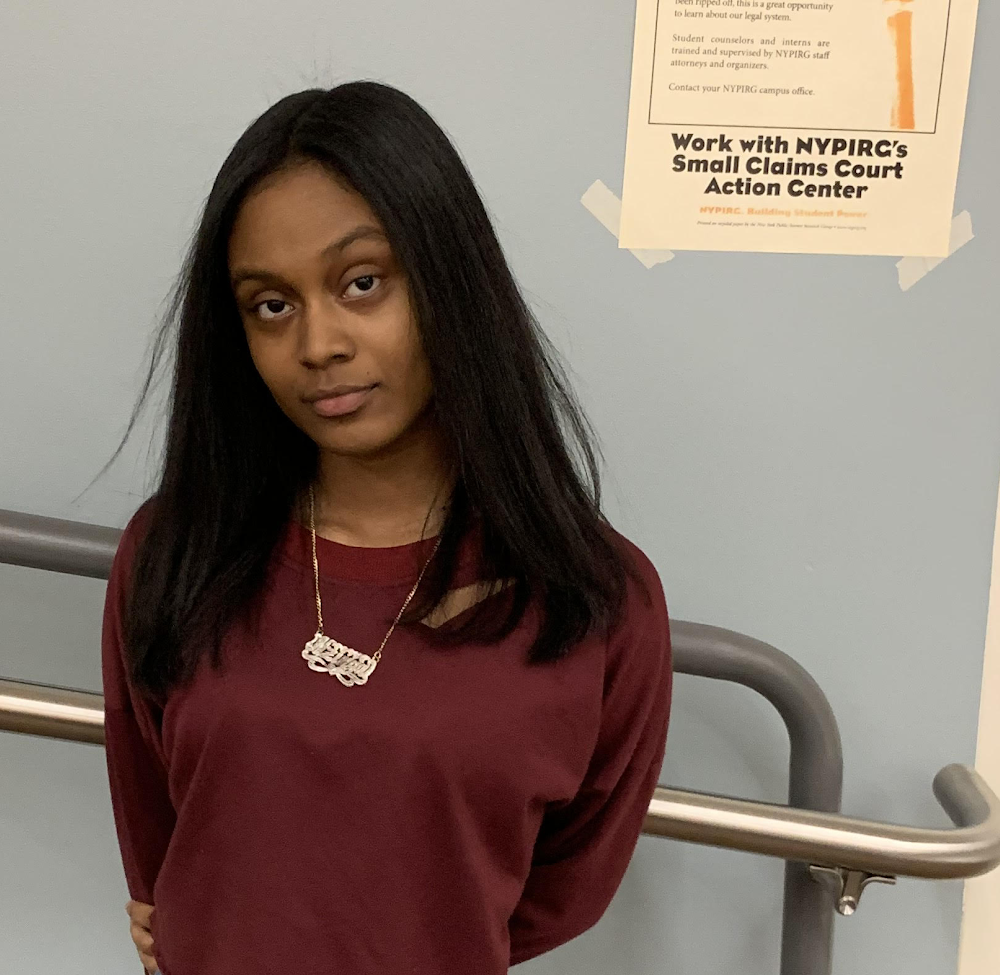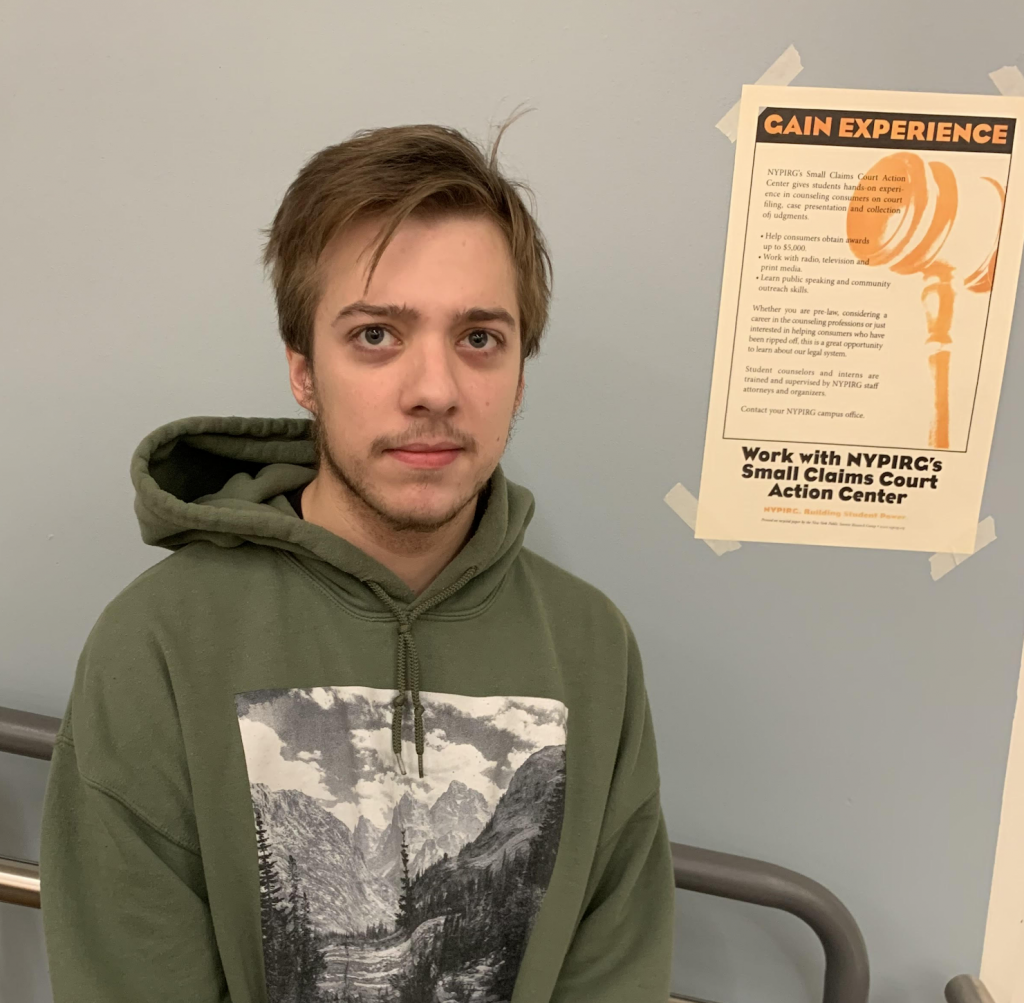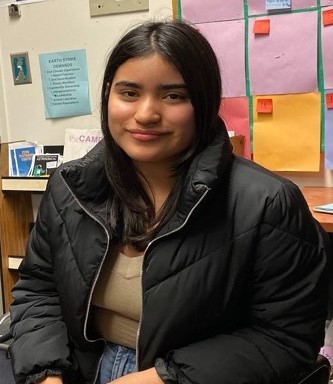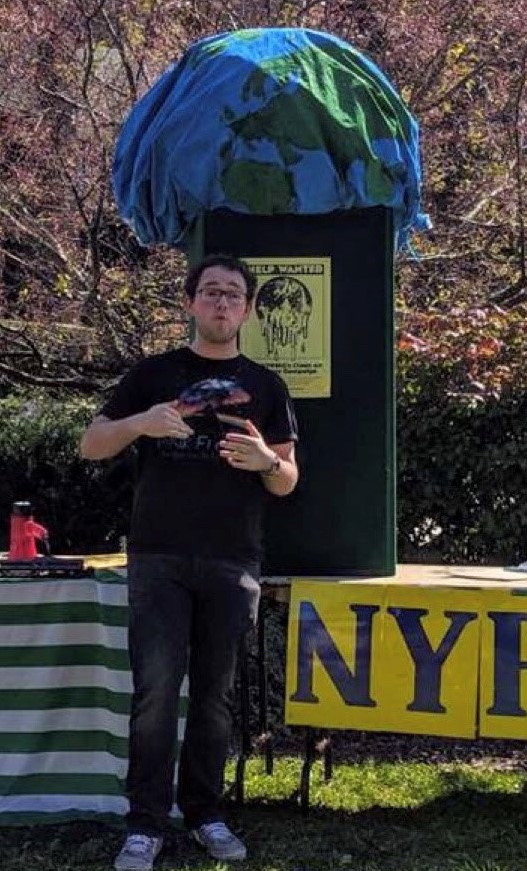Posts Tagged ‘textbooks’


Credit-wise I’m a senior, but I will be here until 2021. I would like to go to law school, but I can’t afford to pay for LSAT exam, which is a couple hundred dollars. I came from the Fashion Institute of Technology graduating with a major in pattern-making technology. Then I went to John Jay where I got my Bachelors in English and minor in Law, and now I’m studying at City Tech as a Law and Paralegal major. I continued to go to school thinking that TAP would cover it because they didn’t tell me that they only cover four years of school. I pay for school through student loans now.
My parents pay for my textbooks, I receive SNAP for food, and I am concerned about graduating on time. Tuition is going up, and I can’t afford it, which means I can’t take full amounts of classes like I want to. I had to go part-time at one point because I couldn’t afford to take full-time credits.
I got sick senior year of my first bachelors, so I had to take a semester off, and then I had a miscarriage so I took another semester off, and what they don’t tell you is that they count those semesters off as part of the 4 years of TAP.
I really need the prices to come down because I’m a single parent with a 14 year-old daughter, and I’m trying to make ends meet. I’m trying to further my career, but it’s too expensive.


I am majoring in law and paralegal studies at City Tech, and it is my 5th year. I want to go to law school after college and then run for the NY Senate, and you never know where else I may end up. I feel like the route taken by most politicians is going to law school and then end up being politically active.
Financial aid covers most of my costs, but I have to pay some out of pocket— approximately $500 to $1000. Before City Tech, I attended various universities, private and public, and saw how the financial aid system worked in those schools. It’s when I got to City Tech that I saw the deficiencies in the system.
I receive TAP and Pell, and it’s not enough to cover my tuition costs, and my parents don’t have the money necessary to adequately fund my higher education. I have three other siblings that are attending college and one that is in 12th grade, looking at colleges now.
I have to go on a deferred payment plan and have been dropped from a course because I didn’t have the money to pay on time. You only have the week from the start of the semester to apply for the deferred payment plan, and if you miss that, you have to pay the amount in full. I was lucky that I called the financial office and asked if there was an alternative to paying all at once.
How do other students find out about this if one has to call to find out about these alternative options? I personally told a number of students that the deferred payment plan was an option, instead of dropping out all together and losing a semester of coursework. They were not aware of this.
Financial aid usually pays for textbooks, but I have to pay out of pocket before the money comes in, which is usually the mid-point, or at the end of the semester. My parents pay for food. If I didn’t receive financial aid, it would be nearly impossible for me to go to school. I am concerned about graduating on time, especially since they’ve said I exhausted my financial aid.
We need a fully funded CUNY, so more people who don’t currently have access to higher education are able to gain access and not be held back socially or economically. That should be the goal. Prospective college students should only have to focus on their schoolwork, instead of on how they will be able to pay for their next semester of college.


While I’ve been lucky enough to have family members that have the means to support me through school, tuition and fee hikes have taken a major toll on my friends. Almost everyone I know is taking a full load of science classes that include lab sessions. They all have to work long hours.
Because we are majoring in hard sciences, textbooks can easily be over a thousand dollars a semester on top of rising tuition costs. We’re expected to either pay now or take out tens of thousands in loans that we can pay if we get jobs after college. This makes it stressful to just be a student because getting a well-paying job is so important.
We’re supposed to be the ones protecting our planet and developing new technologies to fight climate change, but how can we do that if learning how to do that is so difficult? Almost everyone I know talks about how worried they are about their future post-graduation.
I’m also extremely worried about the SUNY system because I have a younger brother and sister who will both be going to college in a few years. If the economy tanks, and my parents lose their jobs, what are my siblings supposed to do? They haven’t been able to save for themselves because they’ve been brought up thinking that they’ll be okay. But if school keeps getting more expensive, I’m not sure what they’ll be able to do.


I am a freshman at Buffalo State. I am a political science major from Queens, NY. I came to Buffalo State planning on majoring in political science because I’ve always been interested in politics and watch the news a lot, though it was comedy shows like the Daily Show that first got me into politics. I want to go to law school so I can practice public interest law, serving clients who can’t afford a lawyer. This means, of all my siblings, I will be the odd one out—the only non-accountant!
I went to the High School of Environmental Studies in Manhattan, where the emphasis was on environmental science. That got me interested in environmental studies. I decided on Buffalo State because I definitely didn’t want to stay in the city for college and wanted a change of scenery so I could focus on studying.
As a freshman, textbooks have been a concern because, even though rentals are sometimes an inexpensive options, it’s first come first served. The bookstore is almost always out of rentals when I go to buy them, which means I have to pay full price. Luckily this term, I managed to get a few rentals for $130, but many classes have multiple books that are hardly ever used. You can’t really tell what books you’re actually going to need, and it becomes an expensive guessing game.
I am not working at the moment because, even though I qualify for federal work-study, there aren’t nearly enough on-campus jobs for all the students who qualify. That means I have to look for off-campus jobs. Given Buffalo weather and not having a car, my choices are limited. It’s important to have a job because of how expensive college life is.
With TAP and all the scholarships I received, I still pay about $5000 toward tuition per semester. My family is paying these costs out of pocket, and I currently can’t register because I haven’t paid for the previous term. I can’t even look at my GPA if I wanted to transfer because everything is frozen until I pay. Courses for my major could get filled before I have time to pay up and register. Financial aid advising needs to be clearer so students know where they stand.


I’m from Harlem in New York, and I’m a sociology major and criminal justice minor at Buffalo State. Before coming to Buffalo State, I attended Promise Academy, a charter school in Harlem which was very helpful in getting me and my classmates through high school to college. Growing up, I always wanted to do criminal justice because it was always a passion of mine, especially around policies like stop-and-frisk and police harassment of African-Americans. I wanted to learn about the criminal justice system as it is so that I could help to implement changes.
I originally started college at Gannon University in Erie, Pennsylvania on an athletic scholarship playing basketball, but it was too much of a shock—and too different from what I was used to in New York City—for me to adjust to the change of environment. I left mid-semester and applied to different schools and Buffalo State got back to me first. Because I left Gannon mid-semester, though, my grades never transferred, and I am not currently receiving a scholarship. Thankfully, I didn’t have to take out loans, but my family and I are paying out of pocket around $5000-6000 per semester.
Though I get some funding for textbooks through Promise Academy, the bill easily adds up to $500 per semester, and this term I have one class with six different assigned texts. In my experience, a lot of the time these books aren’t useful, and we only use them once or twice.
I have had advisors, but I have had difficulty connecting with them. I have to reach out to them, and when I started and was struggling, my advisor wasn’t reaching out to me and didn’t ask about how I was doing. I think we need more funding for advisors so that they can monitor students more actively. As it is, I didn’t meet my advisor until my third year here.
A clearer and better funded system needs to be implemented to allow students to get advice in a timely way. As a senior, now I know the people to talk to and have no problem going to the chair of my department. So now I have better resources, but I’m at the end of my time at Buffalo State. There needs to be better communication about resources that are available and how to get to them. Students like me shouldn’t fall off the grid and not be able to catch up with their work. I think better funding would increase graduation rates.


I’m a sophomore at Buffalo State. I’m coming to Buffalo from the Bronx, where I also went to high school. I’m a psychology major, and when it comes to my career goals, I go back and forth between wanting to get into clinical psychology or having my own business around health care.
One of the reasons I chose to come to Buffalo State is that it is one of the less expensive SUNY schools, but even with that, I wouldn’t call it affordable. One of the biggest costs, which changes a lot depending on the semester, is textbooks. I actually didn’t take a math class in the past knowing that I was going to have to spend a hundred plus dollars on a single textbook. This semester, though, I didn’t spend anything on textbooks because one of my teachers has an online textbook, but last semester I spent a little over $300 for textbooks.
I also don’t get a lot in financial aid, so I find myself constantly having to take out loans. I’ve looked into sponsorship and other programs to apply for to pay for school, and I currently do get one grant, but it’s not that much money.
I wish there was an easier way to find out what I can apply for as far as financial aid goes. I’ve been to the financial aid office maybe four times throughout my two years here—so every semester—really just to try to understand my bill and to understand what resources there are to be able to pay it.
I have an advisor, but I wish there were more options, and it was more convenient for students to schedule meetings because a lot of the time your advisor is not available. Even if the resource is technically there, if you can’t access it when you need it, I think it needs to be changed.


I grew up mostly in upstate New York. I went to Lyons High School in Lyons, NY, which is a really small school; my graduating class was about 60 people. My career goal is to become a software developer or programmer—something along those lines—and I am taking computer science classes here at Buffalo State.
I transferred to Buffalo State from Finger Lakes Community College, which was a two-year school, and Buffalo State was one of the less expensive options for four-year colleges.
Last semester was my first semester here in Buffalo. Because my family is recognized as being in need, I get financial aid of like all stripes. I get Pell Grants and would have gotten Perkins if they hadn’t done away with that. I get TAP and Excelsior. Despite all of that—which sounds like a lot, but it’s not—there’s still money that I have to pay out-of-pocket even though my family really can’t afford it.
At Finger Lakes there were three professors that got together and wrote their own book, and that helped with textbook costs there. This semester, most of my textbooks, like three of them were under $20, but one of them was $150. It was one for my information systems class, and there was another I had that was like $90, and it was just to access an online version.
If I could just focus full-time on schoolwork I would do that, but I need money to pay for textbooks and living expenses beyond what’s covered by financial aid, so I am looking for a job.


I’m a freshman at CCNY. I receive financial aid and pay for books, transportation, and food with my earning from work. I don’t receive work-study and am not part of any opportunity programs. If I didn’t receive any financial aid, I would probably have to take out loans and ask for my parents’ support, but that would be an additional burden on them since they have to have other financial responsibilities.
I would certainly appreciate a child care center on campus because a lot of CCNY students really need it. We need a fully funded CUNY because not all students have access to money. Many of them are struggling. I’m lucky to have parents that would support me if I couldn’t work, but many students don’t have that kind of support. Having to work full time at a job puts a lot of stress on a student and often interrupts their ability to study and maintain their grades. Being in school on its own is very stressful and adding a job to that becomes very draining and can lead to mental health issues.
My biggest challenge as a CUNY student is transportation because the only bus that I’m able to take to get to campus is not reliable, and it interferes with my attendance in class.


I’m a junior majoring in international studies, and I’m minoring in English and Economics. After graduation, I would love to work with a nonprofit organization and hopefully one day I will be able to work with the UN!
I
receive TAP and the Pell grant. I’m part of SEEK, which has helped me
tremendously because they have provided me with a very helpful advisor,
financial help, and an amazing environment for me to be in. I use the money
that I get as a refund after my tuition to pay transportation, food, and books.
I’m currently looking for a part-time job and an internship with a nonprofit organization, but because of my busy schedule at school, it’s very difficult. I’ve also applied for federal work-study, but because financial aid covers my tuition, my application isn’t a priority.
I would
appreciate a child care center on campus because I have many classmates that
bring their children into the classes, and although they don’t often disrupt
the class, they are a distraction to their moms because they have to pay
attention to the children instead of paying attention to the class.
Time management has been my biggest challenge at a CUNY student. I’m very concerned about graduating on time because I have changed majors. It has become very stressful because I am taking six classes next semester. If I didn’t receive financial aid, my parents would have to take out loans to help pay for tuition which would be really hard because I would have to work in order to support myself as well.
We need a fully funded CUNY because many plan on pursuing a master’s or a doctorate degree after college, and if students no longer had to worry about paying for their bachelor’s degree, they could save for furthering their educations. Also, it becomes very hard for a student to maintain a high GPA if they have to work to pay for their tuition, books, and food.


I’m currently a sophomore at SUNY Cortland majoring in Political
Science. At this point, my plan is to attend graduate school after graduation.
As far as paying for school, I rely on taking out loans, using the
financial aid I receive, and having my parents pay some tuition out-of-pocket.
I receive both TAP and the Pell Grant, which allow me to pay for school each
semester. I don’t work, so I need financial aid to pay my tuition and to pay
for textbooks.
If I didn’t receive financial aid, in all likelihood, I would not
be able to attend college. So many people struggle to pay for college, which is
a large part of why SUNY needs to be fully funded. If SUNY was better funded,
those who can’t afford college would be able to go, and middle-class families
that have more than one child would have the ability to send all of their
children to school.
The biggest challenge that I have faced as a SUNY student is
dealing with the stress of not knowing how my parents will pay for my sister to
go to college in two years and worrying about paying off my student debt.
